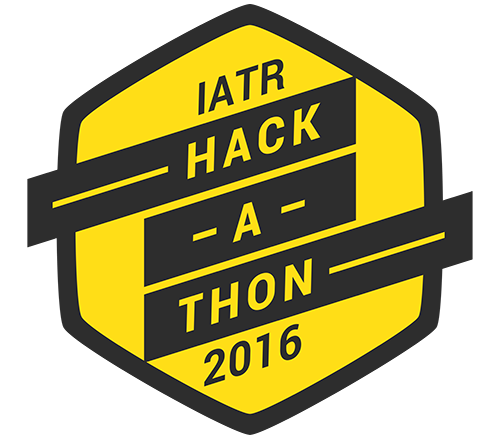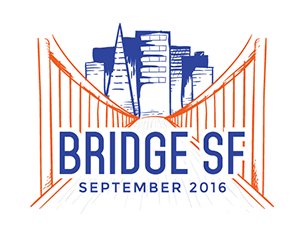Phase 2: 2016 IATR Hackathon

The IATR hack-a-thon that will take place Friday, September 23, 2016. will involve a theme. This theme is broad enough to cover many angles and issues, and is intended to involve broad data sets. The theme of the first-ever IATR hack-a-thon will be based on the focus of the IATR's 29th Annual Conference being held in San Francisco and hosted by the San Francisco Municipal Transit Agency (SFMTA): "21st Century Transportation Regulation - A Vision for Shared Mobility, Multi-Modal Integration & Governance."
The IATR Hackathon begins at 11:30am PST on Friday, September 23 to 11:30am PST on Saturday, September 24, 2016. All deliverables from participants must be submitted for judging by that time. Here are more details on how to submit your entries.
The broad challenge is to analyze the provided data sets to propose ideas that promote shared mobility and multi-modal integration, and/or enhance equity in transportation services for disabled passengers and underserved communities, and/or to increase vehicle safety or reduce motor vehicle crashes, utilizing data sets involving the local, national and international data and innovative solutions:
- Local San Francisco/Bay Area and/or Regional solutions using data obtained from taxicab, limousine and/or Transportation Network Company (TNC) companies, taxicab, limousine and smartphone apps/dispatch companies;
- National solutions for the United States and/or Canada using data sets obtained from taxicab and limousine companies, government regulators outside San Francisco, trade organizations, TNCs and/or credit card or payment industry providers; and/or
- International solutions using data obtained from international trade groups, government regulators and/or other private companies to enhance global transportation solutions and travel between countries.
Sample solutions: The challenge, for now, is couched in broad terms to allow for maximum innovation. A format for the presentation of ideas and solutions will be provided, and may include but not limited to, prototype apps or software, heatmaps identifying trends and significance of data to identifying problems and regulatory solutions, specific policy recommendations based on the data. One example could be prediction analytics identifying the probability of drivers to find fares at certain locations and times, based on aggregate data, or proposed pricing or other congestion mitigation strategies to manage peak time taxicab traffic. Once final sponsors are data sets are identified, the challenge questions may be further narrowed. All solutions will be judged based upon pre-formulated and shared weighting or scoring criteria in the form of a uniform rubric to be provided to those who will judge the submissions, and said scoring criteria will be shared with registered teams and participants.
More details about the IATR Hackathon can be found here.





